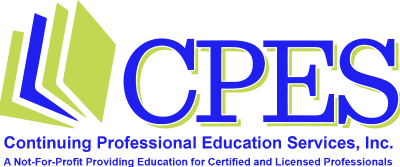Tony Russo, the President of CIANJ and CEO of Commerce Magazine spent over an hour talking about the Law signed by Governor Murphy officially extending the filing of the Soil & Fill Recycling Registration to July 14, 2022.
We discussed who should register and what the A901 process looks like. This is an excellent depiction of requirements as of today, but Rules will be promulgated in the future.
New Jersey’s Soil & Fill Recycling Law: Where We Stand and What’s Next
(Highlights from the July 13, 2022 CPES “Hot Topic” Session with Tony Russo, CIANJ)
1. The Road to “Dirty Dirt” Reform — A 10-Year Flashback
- Superstorm Sandy (2012) exposed widespread mis-handling of demolition soil and debris.
- The State Commission of Investigation’s 2016-17 “Dirty Dirt” report documented unlicensed brokers moving contaminated material into borrow pits, quarries and redevelopment sites.
- In 2019 Governor Murphy signed P.L. 2019, c.397, extending the state’s rigorous A-901 solid-waste licensing regime to many soil-related businesses.
- COVID-19 froze the rollout; Executive Orders tolled statutory deadlines until mid-2021.
2. 2022: A White-Hot Compliance Countdown
With EO-orders lifted, two milestones loomed:
| Deadline (2022) | Obligation | Status after July 2022 extension |
|---|---|---|
| 14 July | File a Soil & Fill Recycling Registration (no fee, 2-page form) | Still required – the “price of admission.” |
| 14 Oct (then Feb/Apr 2023) | Submit a full A-901 license application | Now postponed until 30 days after DEP publishes final rules. |
On 5 July 2022 Governor Murphy signed P.L. 2022, c.64 (A-4265/S-2871), giving businesses breathing room but not relaxing the registration mandate.
3. Who Should Have Registered by 14 July 2022?
“If you touch the money, you’re in.” – DEP Enforcement
Register if, today, you:
- Excavate, load, haul, broker, receive or process soil/fill for a fee;
- Own or lease a site where soil/fill is consolidated or recycled;
- Contract those activities (prime contractors as well as subs).
Not sure? Register anyway—there is no cost and it preserves the right to operate while rules are finalized.
4. What the A-901 License Will Eventually Demand
- Corporate disclosure (10-year look-back on corporate officers, owners, “key employees”).
- Personal disclosure statements and fingerprints for each “key employee” (fee: ~$1,500/person).
- Review by DEP, the Attorney General and NJ State Police Organized-Crime Unit.
- Annual renewal & record-keeping.
Key unresolved issues (to be hammered out in rulemaking):
| Issue | Why It Matters |
|---|---|
| Definition of “Key Employee” (brokers, sales reps, project managers) | Could sweep dozens into background-check costs. |
| Overlap with Licensed Professionals (LSRPs, P.E.s) | Statute exempts LSRPs of record; unclear for other staff. |
| Generator responsibility (developers, utilities) | Will project owners need licenses or only contractors? |
| Certificate of Public Convenience & Necessity | Solid-waste requirement may not fit transient soil jobs. |
| Alternative “enhanced registration” track | Business community seeks lighter path for low-risk actors. |
5. Strategic Action Plan for 2022-23
- Confirm your registration – if DEP hasn’t emailed a certificate, follow up.
- Map your roles – list employees who arrange transportation, sign manifests, bid earthwork, etc.
- Compile background docs now – litigation history, tax liens, bankruptcies, partner lists.
- Watch the stakeholder process – DEP will reconvene technical workgroups this fall; comment early.
- Join a coalition – CIANJ, UTCA, NJBIA, LSRPA and others will push for pragmatic rules.
6. Bottom Line
The July 2022 law didn’t kill A-901 for soil—it only hit pause until rules catch up. Companies that registered can keep working, but the real compliance lift lies ahead. Use the reprieve to audit your operations, gather paperwork, and stay engaged with DEP’s rulemaking.
“The work has just begun,” Tony Russo reminded attendees. “Shame on us if we don’t keep our voices at the table.”
